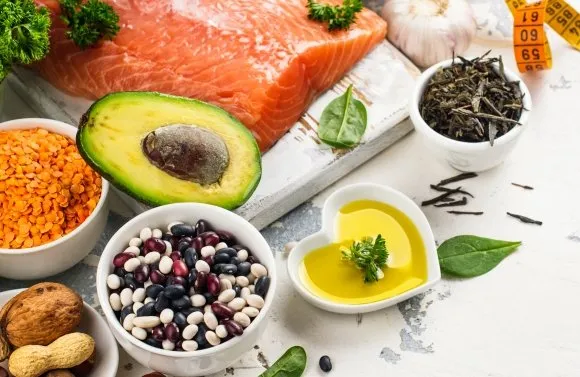A heart-healthy diet forms the foundation of preventive cardiology. The purpose of this approach is to lower the likelihood of cardiovascular problems by making specific, evidence-based choices in daily nutrition. Here is more information on the major food groups on cardiovascular health, the role of healthy fats and fiber, and how sodium and highly processed foods affect the heart:
Prioritizing Whole Foods
Preventive cardiology focuses on diet, exercise, and weight management. Emphasizing fruits and vegetables in your diet supplies the body with vitamins, minerals, and antioxidants that support cardiovascular function. These nutrients help protect cells from oxidative damage. Incorporating a wide variety of fruits and vegetables provides a broad spectrum of beneficial compounds. Leafy greens offer dietary nitrates, while berries bring in polyphenols, each playing a unique role in heart health.
Lean proteins add further value to a heart-focused diet. Fish, poultry without skin, beans, and lentils all supply protein, but with differing nutrient profiles. Fatty fish, such as salmon and mackerel, contain omega-3 fatty acids, a type of polyunsaturated fat known for its cardiovascular benefits. Plant-based proteins also deliver fiber and micronutrients with little saturated fat. Methods to reduce saturated fat from animal protein include choosing lean cuts, removing visible fat, and opting for skinless poultry.
Selecting Healthy Fats and Fiber
Selecting the right types of fats impacts cardiovascular wellness. Unsaturated fats, like those in avocados, nuts, seeds, and olive oil, can support healthy cholesterol levels, especially when replacing saturated and trans fats. Saturated fats, present in animal products and some tropical oils, and artificial trans fats, found in processed snacks and baked goods, can raise cholesterol and should be limited.
Dietary fiber, found in whole grains, legumes, fruits, and vegetables, further contributes to cardiovascular health. Soluble fiber dissolves in water and forms a gel in the digestive tract. This gel can bind cholesterol and help remove it from the body. A few sources of soluble fiber include oats, barley, apples, and citrus fruits. Insoluble fiber, common in whole grains and some vegetables, adds bulk to stool and assists in maintaining regular bowel movements. Both types of fiber play supportive roles in a balanced diet.
Limiting Sodium and Processed Foods
Controlling sodium intake supports healthy blood pressure levels. Many packaged, processed, and restaurant foods contain high levels of sodium. Reading labels helps monitor intake and identify hidden sources of salt. Preparing meals at home lets you manage the salt content directly and explore alternative flavors with herbs, spices, lemon, or vinegar.
Highly processed foods and refined carbohydrates, such as sugary drinks, packaged snacks, and white bread, provide excess calories with limited nutritional value. These items often include added sugars, unhealthy fats, and sodium. Instead, aim for meals made from whole, unprocessed ingredients. Choosing brown rice over white rice, whole-grain breads, and fresh produce over canned or processed versions supports a heart-healthy nutritional profile. These strategies simplify dietary choices and promote overall cardiovascular health.
Learn More About Preventive Cardiology
A heart-healthy diet centers on nutrient-dense foods and structured eating habits. This approach features an abundant variety of fruits and vegetables, the inclusion of lean proteins, and a focus on healthy fats while limiting saturated and trans fats. Whole grains and legumes provide fiber critical to cardiovascular wellness. Sodium reduction and limiting processed foods form an integral part of the plan. If you’re looking to improve your heart health, consult with a cardiologist to learn more.















